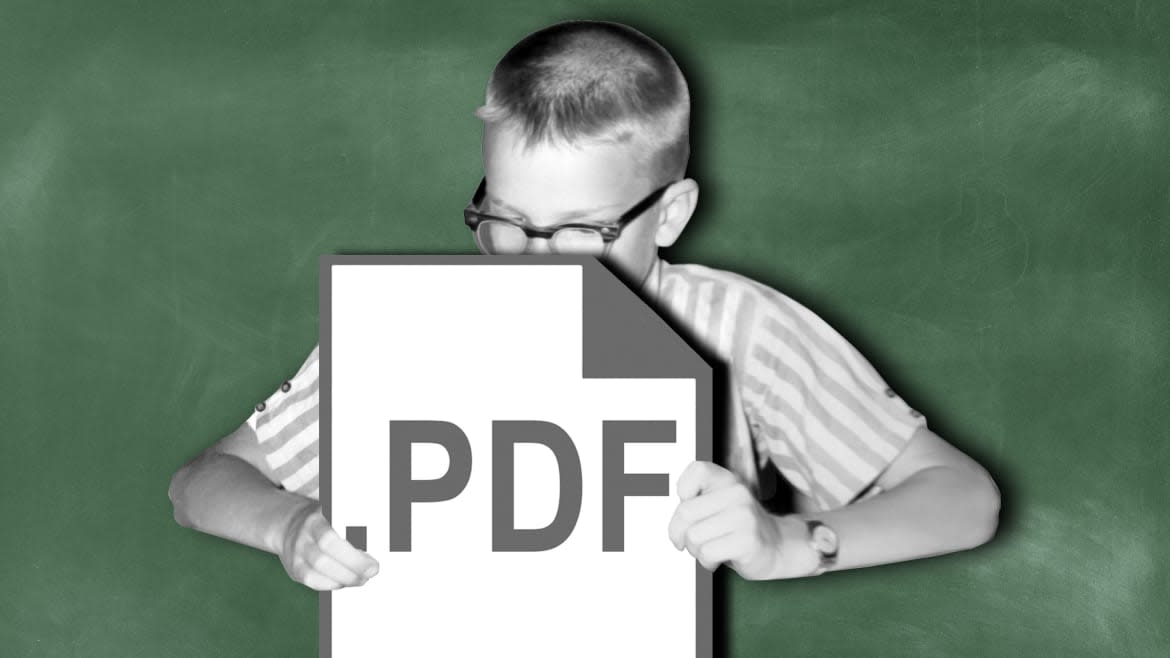Publishers Are Using E-books to Extort Schools and Libraries

During a rough pandemic year of distance learning, e-books—cheap to distribute, searchable, easy to annotate, and accessible on devices that students use every day—became the default choice in many schools.
So you might think that e-books should be freely available to teachers and students to use in the same ways they’ve long used paper books, and at comparable prices. But they’re not.
Instead, many of the biggest publishers are charging schools and libraries top dollar, putting digital books out of reach for tons of kids who need them while putting severe restrictions on how schools can use the books they’re now renting, rather than owning. The draconian terms mean, for example, that a single e-copy of The Diary of Anne Frank can cost a school district as much as $27 per student per year—with the lion’s share of the money going to billion-dollar publishing companies.
“I don’t think parents understand that what their children are learning is based on the decisions of publishers,” a teacher in South Boston told us.
Shrinking district budgets had already forced teachers to take extreme measures to provide quality learning materials for their students; the non-negotiable need for expensive distance-learning materials during the pandemic only made matters worse. One teacher took screenshots of every page of a graphic novel and compiled them into a PDF for his class; another reads just one page of a book each day during virtual story time in order to avoid copyright restrictions. Others have gained access to Learning Ally, which provides e-books for the print-disabled, by claiming learning-disabled status for every student they teach. In October, the National Education Association reported that nearly a quarter of students don’t have what they need for online learning.
“I’m a teacher, not a copyright lawyer,” said an art educator who teaches mostly via YouTube video. “I worry in the future that these videos will harm me in some way.”
It’s not an abstract concern; violating copyright can land school districts in serious trouble. In 2019, Houston Public schools were ordered to pay $9.2 million to a publisher for violating copyright law. The recent lawsuit against the Internet Archive’s Open Library was filed by four of the world’s biggest publishers, who claim that the laws that apply to paper books bought and loaned in libraries don’t apply to digital books. The publishers’ ultimate goal is to turn e-books into assets that libraries and schools can only rent, and never own. The stakes couldn’t be higher.
As the debate rages over the legal aspects of owning digital assets, rather than licensing them on terms set by corporations—which is at its core a fight over the right of schools and libraries to provide books for everyone, regardless of income level or zip code—poorer kids and their families are the losers. As Heather Joseph, the executive director of the Scholarly Publishing and Academic Resources Coalition, said at a recent event, “People can still get access to resources with a card, but it is no longer with a library card or a student ID; it’s with a credit card. A library card is a legitimate, equalizing force that ensures everyone has access to knowledge.”
The good news is that the Biden administration seems to be taking learning equity seriously. The new American Rescue Plan allocates $7 billion to support teachers and students with connected devices. But Congress must also take more and bolder steps, not just to beef up school budgets, but to protect that money from profiteers.
This spring, the new nonprofit Library Futures organized library groups to support initiatives that balance copyright with the service of the public good, including Controlled Digital Lending, which allows libraries to buy and lend digital materials on the same terms as print books. Oregon Senator Ron Wyden—who is the son of a librarian—spoke recently in support of these initiatives at a recent Georgetown Law panel.
“How do you combat falsehoods and lies?” he asked. “Some say, let’s just force internet platforms to take down disinformation... that’s unconstitutional. The First Amendment protects 98 percent of all speech. But even if it was legal, putting the government in charge of policing what’s true and false is a horrendous idea... What government needs to do is to make sure that every single American has easy, free access to reliable information from trustworthy sources, so we have more good information to combat the bad stuff. That’s the role that libraries were designed to fill.”
What we need, in other words, is an approach that balances copyright with the free and equal access to information that’s the hallmark of a healthy society. Connecting the fight against disinformation to protecting every student’s access to good books is smart policy, and smart politics.
Get our top stories in your inbox every day. Sign up now!
Daily Beast Membership: Beast Inside goes deeper on the stories that matter to you. Learn more.

